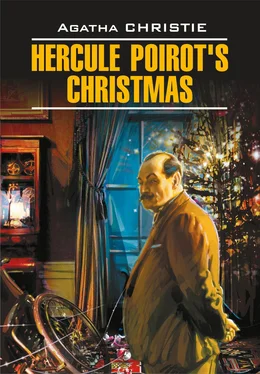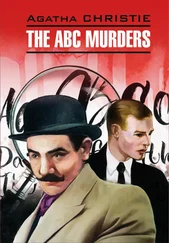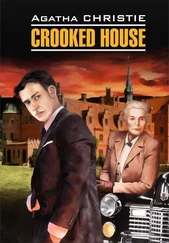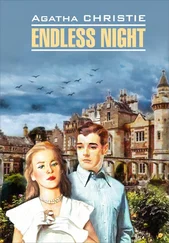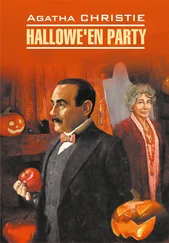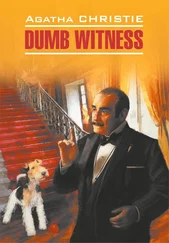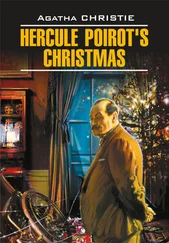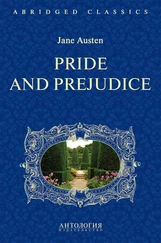David Lee said recklessly: ‘I should think – quite a lot of people! I don’t know of anyone definite.’
He went out rapidly, shutting the door loudly behind him.
Colonel Johnson had had no time to do more than clear his throat when the door opened again and Hilda Lee came in.
Hercule Poirot looked at her with interest. He had to admit to himself that the wives these Lees had married were an interesting study. The swift intelligence and greyhound grace of Lydia, the meretricious airs and graces of Magdalene, and now, the solid comfortable strength of Hilda. She was, he saw, younger than her rather dowdy style of hairdressing and unfashionable clothes made her appear. Her mouse-brown hair was unflecked with grey and her steady hazel eyes set in the rather podgy face shone out like beacons of kindliness. She was, he thought, a nice woman.
Colonel Johnson was talking in his kindliest tone. ‘…A great strain on all of you,’ he was saying. ‘I gather from your husband, Mrs Lee, that this is the first time you have been to Gorston Hall?’
She bowed her head.
‘Were you previously acquainted with your father-in-law, Mr Lee?’
Hilda replied in her pleasant voice: ‘No. We were married soon after David left home. He always wanted to have nothing to do with his family [223] wanted to have nothing to do with his family – ( разг. ) не хотел иметь ничего общего со своим семейством
. Until now we have not seen any of them.’
‘How, then, did this visit come about?’
‘My father-in-law wrote to David. He stressed his age and his desire that all his children should be with him this Christmas.’
‘And your husband responded to this appeal?’
Hilda said: ‘His acceptance was, I am afraid, all my doing – I misunderstood the situation.’
Poirot interposed. He said: ‘Will you be so kind as to explain yourself a little more clearly, madame? I think what you can tell us may be of value.’
She turned to him immediately. She said: ‘At that time I had never seen my father-in-law. I had no idea what his real motive was. I assumed that he was old and lonely and that he really wanted to be reconciled to all his children.’
‘And what was his real motive, in your opinion, madame?’
Hilda hesitated a moment. Then she said slowly: ‘I have no doubt – no doubt at all – that what my father-in-law really wanted was not to promote peace but to stir up strife [224] to stir up strife – ( разг. ) затеять свару
.’
‘In what way?’
Hilda said in a low voice: ‘It amused him to – to appeal to the worst instincts in human nature.
There was – how can I put it? – a kind of diabolical impishness about him. He wished to set every member of the family at loggerheads with one another [225] to set every member of the family at loggerheads with one another – ( разг. ) устроить так, чтобы все переругались со всеми
.’
Johnson said sharply: ‘And did he succeed?’
‘Oh, yes,’ said Hilda Lee. ‘He succeeded.’
Poirot said: ‘We have been told, madame, of a scene that took place this afternoon. It was, I think, rather a violent scene.’
She bowed her head.
‘Will you describe it to us – as truthfully as possible, if you please.’
She reflected a minute. ‘When we went in my father-in-law was telephoning.’
‘To his lawyer, I understand?’
‘Yes, he was suggesting that Mr – was it Charlton? – I don’t quite remember the name – should come over as he, my father-in-law, wanted to make a new will. His old one, he said, was quite out of date.’
Poirot said: ‘Think carefully, madame; in your opinion did your father-in-law deliberately ensure that you should all overhear this conversation, or was it just by chance that you overheard it [226] was it just by chance that you overheard it – ( разг. ) или вы чисто случайно услышали разговор
?’
Hilda Lee said: ‘I am almost sure that he meant us to overhear.’
‘With the object of fomenting doubt and suspicions among you?’
‘Yes.’
‘So that, really, he may not have meant to alter his will at all?’
She demurred. ‘No, I think that part of it was quite genuine. He probably did wish to make a new will – but he enjoyed underlining the fact.’
‘Madame,’ said Poirot, ‘I have no official standing [227] I have no official standing – ( разг. ) у меня нет официальных полномочий
and my questions, you understand, are not perhaps those that an English officer of the law would ask. But I have a great desire to know what form you think that new will would have taken. I am asking, you perceive, not for your knowledge, but simply for your opinion. Les femmes [228] Les femmes – ( фр. ) Женщины
, they are never slow to form an opinion, Dieu merci [229] Dieu merci – ( фр. ) благодарение Богу
.’
Hilda Lee smiled a little. ‘I don’t mind saying what I think. My husband’s sister Jennifer married a Spaniard, Juan Estravados. Her daughter, Pilar, has just arrived here. She is a very lovely girl – and she is, of course, the only grandchild in the family. Old Mr Lee was delighted with her. He took a tremendous fancy to her. In my opinion, he wished to leave her a considerable sum in his new will. Probably he had only left her a small portion or even nothing at all in an old one.’
‘Did you know your sister-in-law at all?’
‘No, I never met her. Her Spanish husband died in tragic circumstances, I believe, soon after the marriage. Jennifer herself died a year ago. Pilar was left an orphan. This is why Mr Lee sent for her to come and live with him in England.’
‘And the other members of the family, did they welcome her coming?’
Hilda said quietly: ‘I think they all liked her. It was very pleasant to have someone young and alive in the house.’
‘And she, did she seem to like being here?’
Hilda said slowly: ‘I don’t know. It must seem cold and strange to a girl brought up in the South – in Spain.’
Johnson said: ‘Can’t be very pleasant being in Spain just at present. Now, Mrs Lee, we’d like to hear your account of the conversation this afternoon.’
Poirot murmured: ‘I apologize. I have made the digressions.’
Hilda Lee said: ‘After my father-in-law finished telephoning, he looked round at us and laughed, and said we all looked very glum. Then he said he was tired and should go to bed early. Nobody was to come up and see him this evening. He said he wanted to be in good form for Christmas Day. Something like that.’
‘Then – ’ Her brows knit in an effort of remembrance. ‘I think he said something about its being necessary to be one of a large family to appreciate Christmas, and then he went on to speak of money. He said it would cost him more to run this house in future. He told George and Magdalene they would have to economize. Told her she ought to make her own clothes. Rather an old-fashioned idea, I’m afraid. I don’t wonder it annoyed her. He said his own wife had been clever with her needle.’
Poirot said gently: ‘Is that all that he said about her?’
Hilda flushed. ‘He made a slighting reference to her brains. My husband was very devoted to his mother, and that upset him very much. And then, suddenly Mr Lee began shouting at us all. He worked himself up [230] worked himself up – ( разг. ) перевозбудился
about it. I can understand, of course, how he felt – ’
Читать дальше
Конец ознакомительного отрывка
Купить книгу
